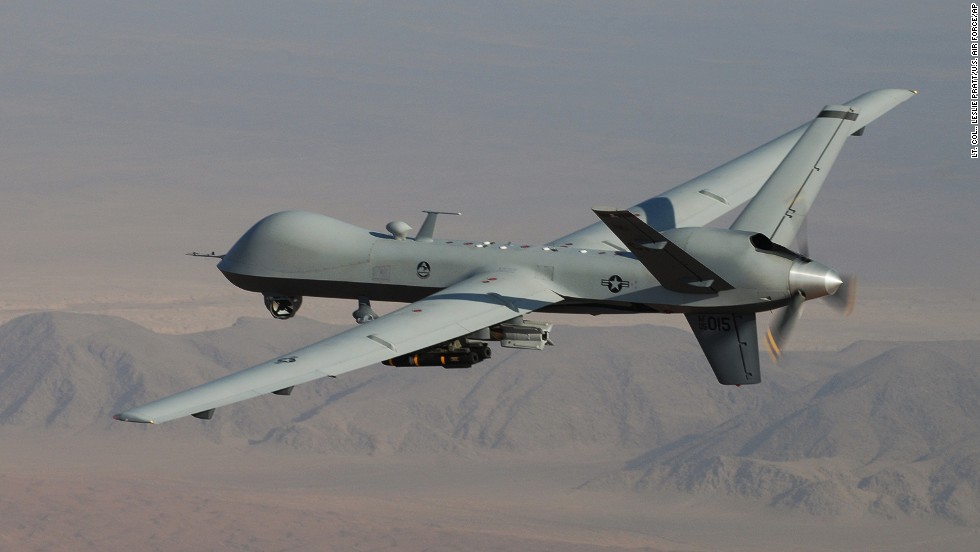
Bruce Schneier is a security technologist and chief technology officer of Resilient Systems Inc. His latest book is "Data and Goliath: The Hidden Battles to Collect Your Data and Control Your World." He blogs at schneier.com and tweets @schneierblog. The opinions expressed in this commentary are solely those of the author.
(CNN)Last month, a Kentucky man shot down a drone that was hovering near his backyard.
WDRB News reported that the camera drone's owners soon showed up at the home of the shooter, William H. Merideth: "Four guys came over to confront me about it, and I happened to be armed, so that changed their minds," Merideth said. "They asked me, 'Are you the S-O-B that shot my drone?' and I said, 'Yes I am,'" he said. "I had my 40 mm Glock on me and they started toward me and I told them, 'If you cross my sidewalk, there's gonna be another shooting.'" Police charged Meredith with criminal mischief and wanton endangerment.
This is a trend. People have shot down drones in southern New Jersey and rural California as well. It's illegal, and they get arrested for it.
Technology changes everything. Specifically, it upends long-standing societal balances around issues like security and privacy. When a capability becomes possible, or cheaper, or more common, the changes can be far-reaching. Rebalancing security and privacy after technology changes capabilities can be very difficult, and take years. And we're not very good at it.
The security threats from drones are real, and the government is taking them seriously. In January, a man lost control of his drone, which crashed on the White House lawn. In May, another man was arrested for trying to fly his drone over the White House fence, and another last week for flying a drone into the stadium where the U.S. Open was taking place.
Drones have attempted to deliver drugs to prisons in Maryland, Ohio and South Carolina -- so far.
There have been many near-misses between drones and airplanes. Many people have written about the possible terrorist uses of drones.
Defenses are being developed. Both Lockheed Martin and Boeing sell anti-drone laser weapons. One company sells shotgun shells specifically designed to shoot down drones.
Other companies are working on technologies to detect and disable them safely. Some of those technologies were used to provide security at this year's Boston Marathon.
Law enforcement can deploy these technologies, but under current law it's illegal to shoot down a drone, even if it's hovering above your own property. In our society, you're generally not allowed to take the law into your own hands. You're expected to call the police and let them deal with it.
There's an alternate theory, though, from law professor Michael Froomkin. He argues that self-defense should be permissible against drones simply because you don't know their capabilities. We know, for example, that people have mounted guns on drones, which means they could pose a threat to life. Note that this legal theory has not been tested in court.
Increasingly, government is regulating drones and drone flights both at the state level and by the FAA. There are proposals to require that drones have an identifiable transponder, or no-fly zones programmed into the drone software.
Still, a large number of security issues remain unresolved. How do we feel about drones with long-range listening devices, for example? Or drones hovering outside our property and photographing us through our windows?
What's going on is that drones have changed how we think about security and privacy within our homes, by removing the protections we used to get from fences and walls. Of course, being spied on and shot at from above is nothing new, but access to those technologies was expensive and largely the purview of governments and some corporations. Drones put these capabilities into the hands of hobbyists, and we don't know what to do about it.
The issues around drones will get worse as we move from remotely piloted aircraft to true drones: aircraft that operate autonomously from a computer program. For the first time, autonomous robots -- with ever-increasing intelligence and capabilities at an ever-decreasing cost -- will have access to public spaces. This will create serious problems for society, because our legal system is largely based on deterring human miscreants rather than their proxies.
Our desire to shoot down a drone hovering nearby is understandable, given its potential threat. Society's need for people not to take the law into their own hands -- and especially not to fire guns into the air -- is also understandable. These two positions are increasingly coming into conflict, and will require increasing government regulation to sort out. But more importantly, we need to rethink our assumptions of security and privacy in a world of autonomous drones, long-range cameras, face recognition, and the myriad other technologies that are increasingly in the hands of everyone.
Join us on Facebook.com/CNNOpinion.
Read CNNOpinion's Flipboard magazine.
Sumber: http://rss.cnn.com/c/35494/f/676977/s/49b510f2/sc/23/l/0L0Scnn0N0C20A150C0A90C0A90Copinions0Cschneier0Eshoot0Edown0Edrones0Cindex0Bhtml0Deref0Frss0Itech/story01.htm
0 Response to "Is It OK To Shoot Down A Drone Over Your Backyard?"
Posting Komentar